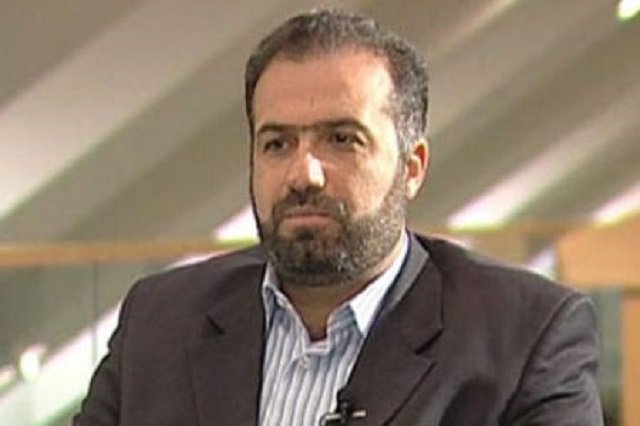Source: Bloomberg View – by Eli Lake (Iran’s Elections Are Magic)
If you are following the Iranian elections, prepare to be dazzled. According to major news outlets from the BBC to the Associated Press, the reformists beat the hardliners.
But wait. Didn’t Iran’s Guardian Council disqualify most of the reformists back in January? Of course it did, but thanks to the magic of Iranian politics, many of yesterday’s hardliners are today’s reformist.
Take Kazem Jalali. Until this month, Jalali was one of those hardliners whom President Barack Obama had hoped to marginalize with the Iran nuclear deal. Jalali has, for example, called for sentencing to death the two leaders of the Green Movement, who are currently under house arrest. And yet, he ran on the list endorsed by the reformists in Friday’s election.
Two former intelligence ministers, accused by Iran’s democratic opposition of having dissidents murdered, Mohammad Mohammadi Reyshahri and Ghorbanali Dorri-Najafabadi, also ran on the list endorsed by Iran’s moderate president for the Assembly of Experts, the panel that is charged with selecting the next supreme leader.
The initial Iranian reform movement of the late 1990s sought to allow more social freedoms and political opposition of the unelected side of Iran’s government, such as the office of the Supreme Leader and the Guardian Council. Over time however, the changes supported by the reformists like Mohammed Khatami, who was president between 1997 and 2005, were stymied by these unelected institutions. When the next generation of reform politicians ran for office in 2009 under the banner of the green movement, the unelected part of the state arrested their supporters when they demonstrated what they saw as a stolen election. On Friday, many of the hardliners that opposed the reformists in the late 1990s and in 2009 are running under this banner.
As Saeed Ghasseminejad, an expert on Iranian politics at the Foundation for Defense of Democracies, recently said: “Putting a reformist or moderate label on hardliners does not make them reformist or moderate.”
In some cases, the transformation happened so quickly that the candidates themselves were surprised. Caitlin Shayda Pendleton, an analyst with the American Enterprise Institute’s Critical Threats Project, wrote last week, two of the candidates on Rouhani’s list for the Assembly of Experts told reporters they weren’t asked to be included among the alleged reformists. These include Ayatollah Ali Movahedi Kermani, who defended the Guardian Council’s vetting process against the reformists; as well as Ayatollah Mohammad-Ali Taskhiri, who told reporters “I believe that the correct way is Principalist, and the way of others, like Reformists or moderates, is the incorrect way.”
As Pendleton wrote on Sunday, “Many (but far from all) candidates described as Reformists in both the parliamentary and Assembly of Experts elections are actually Moderates who were endorsed by Reformist leaders as a fallback after the Guardian Council disqualified most of the Reformists trying to run.”
The headlines however tell a different story. The Guardian, for example, says: “Iranian elections deal blow to hardliners as reformists make gains.” The BBC concludes: “Reformists win all 30 Tehran seats.” And on it goes.
Headline writers should be given some slack on this. After all, President Hassan Rouhani — a moderate, but no reformer — himself has celebrated the preliminary results in the elections as a major victory. After criticizing the disqualifications, he has held his tongue and tried to make the most of a bad situation, encouraging Iranians to vote nonetheless.
The same is true for many of the marginalized reformists. Khatami, who the state has decreed an unmentionable figure for Iranian media, took to the social network Telegram to urge his countrymen to vote. The logic here is that at the very least, voters could protest the most reactionary hardliners in favor of the slightly less reactionary hardliners. This is hardly a victory for democratic change in Iran. And that is what is important for Westerners trying to make sense of Iran’s elections. While Iranian politicians have to make the best of a bad hand, we don’t. Western journalists and analysts don’t need to confer legitimacy on illegitimate elections, nor should we call hardliners “reformists.” At the very least, it’s important to hold out a higher standard for the day real reformers are allowed to compete fairly for power in Iran.
And yet many of Iran’s alleged supporters in the West have gone along with the spin. Trita Parsi, an Iranian-Swedish activist whose U.S. organization played a key role in lobbying for the Iran nuclear deal,wrote on Sunday evening that critics of Friday’s election didn’t misread what he euphemistically called the “flaws in the Iranian political system.” Rather these critics “misread the strength of the Iranian society and the sophistication of the Iranian electorate, who once again have shown that they have the maturity and wisdom to change their society peacefully from within, without any support or interference from the outside.”
It’s quite something when an Iranian who claims to support the opening of Iran’s society praises the “maturity and wisdom” of an electorate offered “reformists” who support the disqualification of reformers.
But this is the magic of Iran’s elections. In the end, Iran’s supreme leader doesn’t need to defend their legitimacy. He has plenty in the West eager to do it for him.



COMMENTS